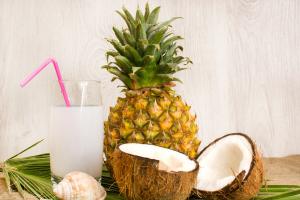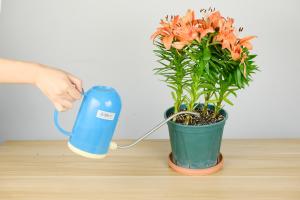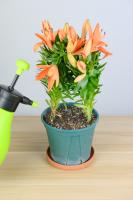How to Remove Hard Water Spots from Plant Leaves
Hard water contains high levels of minerals such as calcium and magnesium that can leave unsightly white or brown spots on your plant leaves. Over time, these spots can damage your plants and affect their growth. Here are a few simple ways to remove hard water spots from your plant leaves:
Vinegar Solution
Vinegar is a natural acid that can dissolve mineral deposits on plant leaves. Mix equal parts of white vinegar and water in a spray bottle and mist your plant leaves with the solution. Wait ten minutes, then use a soft cloth or sponge to wipe away the water spots.
If your plant leaves are delicate or sensitive, you can dilute the vinegar solution with more water. Be sure to rinse your plant leaves with clean water after using the vinegar solution to prevent any residual acid from damaging your plant.
Lemon Juice Solution
Lemon juice is another natural acid that can help remove hard water spots from your plant leaves. Squeeze fresh lemon juice into a spray bottle and add some water. Mist your plant leaves with the lemon juice solution and let it sit for ten minutes.
Use a soft cloth or sponge to wipe away the water spots, then rinse your plant leaves with clean water. If your plant leaves are sensitive to acid, you can also use citric acid instead of lemon juice to make a milder solution.
Baking Soda Paste
Baking soda is an alkaline substance that can neutralize acid and dissolve mineral deposits on plant leaves. Combine baking soda and water to form a paste, then apply the paste to your plant leaves with a soft brush or sponge.
Let the paste sit on your plant leaves for ten minutes, then rinse them with clean water. Use a soft cloth or sponge to wipe away any remaining water spots. Be sure to test the baking soda paste on a small part of your plant leaves first, as some plants may be sensitive to alkaline substances.
Demineralized Water
If you have hard water or live in an area with high mineral content, you may want to consider using demineralized water to water your plants. Demineralized water has had its mineral content removed, making it ideal for plant care.
You can buy demineralized water at many gardening stores, or you can use a water filter to remove minerals from your tap water. Using demineralized water can not only prevent water spots on your plant leaves, but it can also improve the overall health of your plants.
Conclusion
Removing hard water spots from your plant leaves can help keep your plants healthy and looking their best. Whether you use a vinegar solution, a lemon juice solution, a baking soda paste, or demineralized water, be sure to follow safe plant care practices and test any solutions on a small part of your plant leaves first.
With the right care and attention, you can ensure that your plants thrive and continue to beautify your home or garden for years to come.

 how many times do yo...
how many times do yo... how many planted tre...
how many planted tre... how many pine trees ...
how many pine trees ... how many pecan trees...
how many pecan trees... how many plants comp...
how many plants comp... how many plants can ...
how many plants can ... how many plants and ...
how many plants and ... how many pepper plan...
how many pepper plan...





























